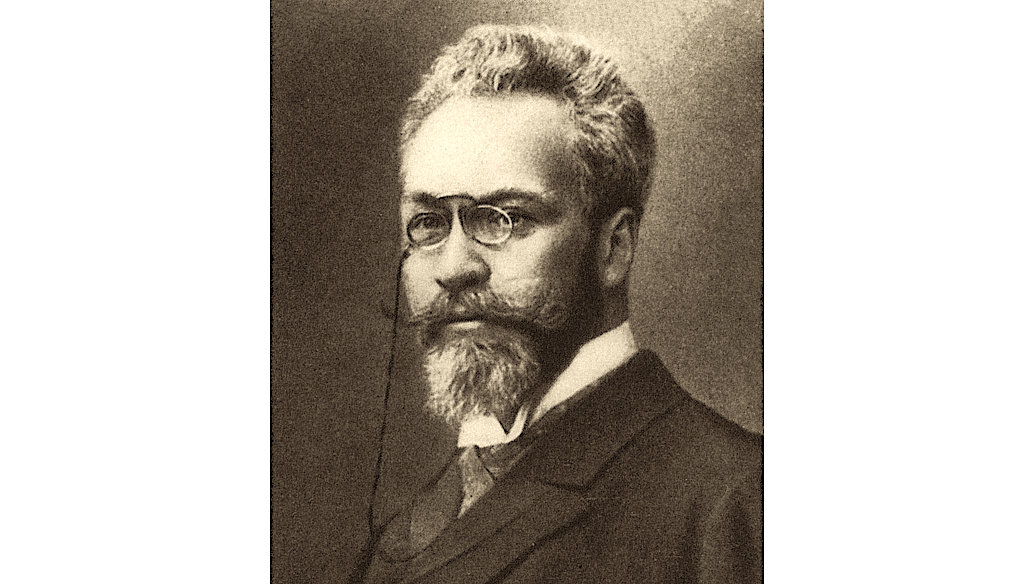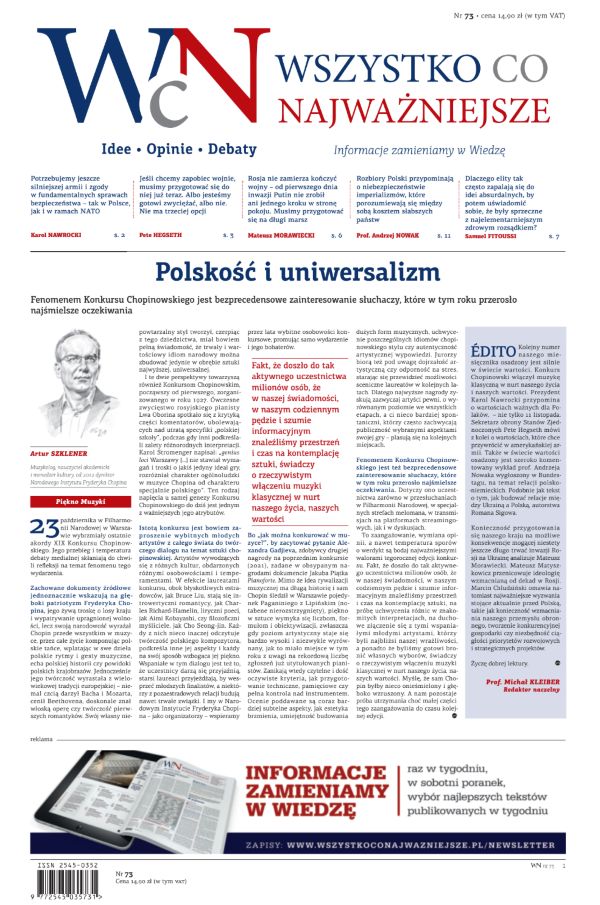
 A professor from Wrocław who paved the way for the creation of insulin
A professor from Wrocław who paved the way for the creation of insulin
‘Among the exceptional physicians associated with Wrocław, particular recognition should be given to Oskar Minkowski, whose findings laid the foundation for the development of insulin, a medicine that has saved millions of lives. For nearly two decades the distinguished scientist headed a clinic, taught students and treated patients,’ writes Jolanta PAWNIK
.Oskar Minkowski was born on 13 January 1858 near Kaunas into a family of Jewish merchants of Polish-Lithuanian descent. The anti-Semitic policies of the tsarist regime drove the Minkowski family to leave their home and move to Königsberg. The elder brother took charge of the family business, while the younger, Hermann, became a world-renowned mathematician, the creator of the concept of spacetime and a teacher of Albert Einstein.
From a young age, Oskar Minkowski was fascinated by the natural sciences and medicine. He pursued medical studies at the University of Königsberg, where he earned a doctorate with a dissertation on the electrical reactivity of the brain. In 1888 he settled in Strasbourg, where he worked until 1904. He then moved his career to Cologne and later to Greifswald, where he was appointed Chair of Internal Medicine.
While in Strasbourg, the young scientist began his collaboration with Joseph von Mering, an internist and pharmacologist who, like Minkowski, was interested in the role of the pancreas in metabolic processes. In 1888, Minkowski carried out an operation on a dog, removing its pancreas to show that the procedure would cause diabetes. As predicted, the animal soon developed symptoms such as excessive urination and the presence of glucose in its urine.
Although Minkowski was the first to link the pancreas with diabetes, he was unable to isolate the relevant hormone. Nevertheless, his findings set the stage for modern diabetology, which culminated in the discovery of insulin by Frederick Banting and Charles Best in 1921.
The Wrocław chapter of Minkowski’s story began in 1909, when he took up the Chair of Internal Medicine at the local university. For nearly two decades he ran the clinic, taught students and treated patients. In his offices on Maria Curie-Skłodowska Street, he continued his research into metabolism, carbohydrate balance and the role of the pancreas. He was not only a researcher but also a respected clinician. He is documented to have given medical consultations for Vladimir Lenin’s health issues, among others.
After insulin had been isolated, Minkowski became involved in introducing it into medical practice, and in 1913 the Wrocław clinic carried out the first attempts at administering the drug orally. In 1923, he established an insulin committee in Germany, served multiple terms as president of the German Society of Internal Medicine, and received twelve nominations for the Nobel Prize in Physiology or Medicine between 1902 and 1932. His research extended to other diseases as well, including congenital haemolytic anaemia and haemolytic jaundice. He also identified the causes of acromegaly.
In his later years, Minkowski dedicated much of his effort to defending his reputation from allegations that he had downplayed Aryan von Mering’s role in connecting the pancreas to diabetes. He wrote a letter detailing his evidence and deposited it in the Wrocław archives, believing that future generations would learn the truth. When the Nazis seized power in 1933, professors dismissed from their posts saved the document from destruction.
In 1926, as his health declined and disputes mounted, Minkowski retired. He died on 18 July 1931 in Fürstenberg, Mecklenburg. He was buried in Wrocław, though his remains were later moved to Berlin to rest beside his brother Hermann. His children left Wrocław just before the outbreak of the Second World War. His wife and daughter settled in Buenos Aires, while his son Rudolf became an astrophysicist in the United States and discovered a galaxy that now bears his name.
.The community of dabetologists continues to honour Minkowski’s achievements. A Wrocław street bears his name, and since 1966 the Minkowski Prize has been awarded by the European Association for the Study of Diabetes to researchers who have made an outstanding contribution to the field.





